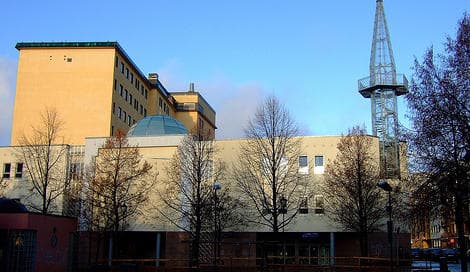Politician writes first Urdu history of Norway

A Labour party politician in Norway has written the first Urdu-language history of the country, in a bid to help other Pakistani-Norwegian immigrants to better understand their new country.
Khalid Mahmood, who serves as a member of Oslo City Council, has taken three years to write the book, liaising with his publishers in Lahore over how to translate certain terms -- such as the Eucharist, which do not exist in Urdu. “The people in Pakistan who have assisted me are skilled,” he told NRK. “They have found words [in Urdu], but didn’t understand them sometimes and made misinterpretations that I have had to correct, before sending my work back to them for proofreading again.” The book tells the history of Norway from the Ice Age until 1970, drawing on classic Norwegian histories, as well as on the biographies of Norwegian leaders such as Jo Benkow, Johan Nygaardsvold, and Einar Gerhardsen. Mahmood said he'd become particularly interested in the role of religion in the country's development. "Religion is sensitive, and if you are not from the same religion, you must be careful," He said. "Otherwise, what I write will be perceived as criticizing religion and it can be misunderstood or misconstrued. Then I will achieve the opposite of what I am trying to do, which is to educate and spread knowledge." The first generation of Pakistani-Norwegians came as guest workers in the 1970s, and there are now some 39,134 in the country, making up about 0.8 percent of the population. The book will be published in February in Pakistan. Mahmood plans to write a second volume, which will focus on the experience of the Pakistanis who moved to Norway after 1970.
Comments
See Also
Khalid Mahmood, who serves as a member of Oslo City Council, has taken three years to write the book, liaising with his publishers in Lahore over how to translate certain terms -- such as the Eucharist, which do not exist in Urdu.
“The people in Pakistan who have assisted me are skilled,” he told NRK. “They have found words [in Urdu], but didn’t understand them sometimes and made misinterpretations that I have had to correct, before sending my work back to them for proofreading again.”
The book tells the history of Norway from the Ice Age until 1970, drawing on classic Norwegian histories, as well as on the biographies of Norwegian leaders such as Jo Benkow, Johan Nygaardsvold, and Einar Gerhardsen.
Mahmood said he'd become particularly interested in the role of religion in the country's development.
"Religion is sensitive, and if you are not from the same religion, you must be careful," He said. "Otherwise, what I write will be perceived as criticizing religion and it can be misunderstood or misconstrued. Then I will achieve the opposite of what I am trying to do, which is to educate and spread knowledge."
The first generation of Pakistani-Norwegians came as guest workers in the 1970s, and there are now some 39,134 in the country, making up about 0.8 percent of the population.
The book will be published in February in Pakistan.
Mahmood plans to write a second volume, which will focus on the experience of the Pakistanis who moved to Norway after 1970.
Join the conversation in our comments section below. Share your own views and experience and if you have a question or suggestion for our journalists then email us at [email protected].
Please keep comments civil, constructive and on topic – and make sure to read our terms of use before getting involved.
Please log in here to leave a comment.